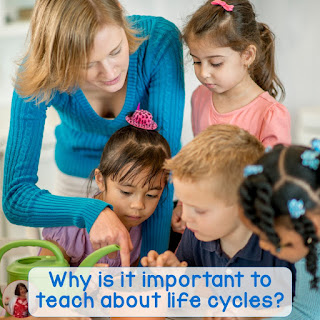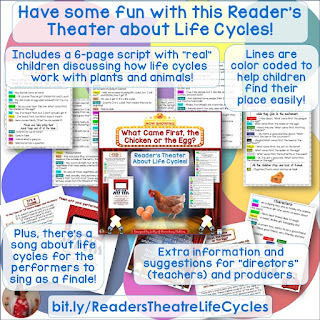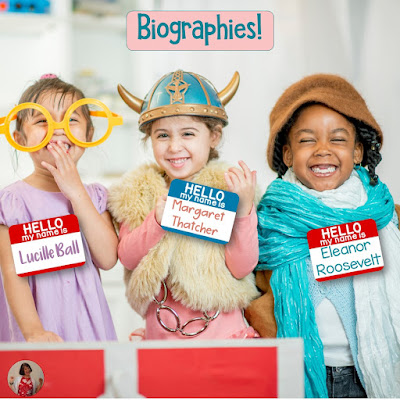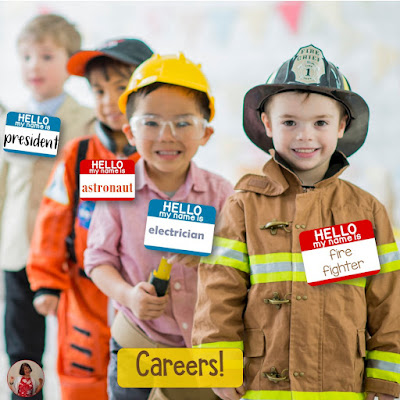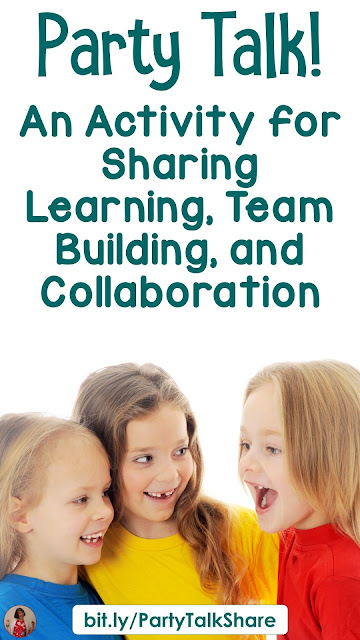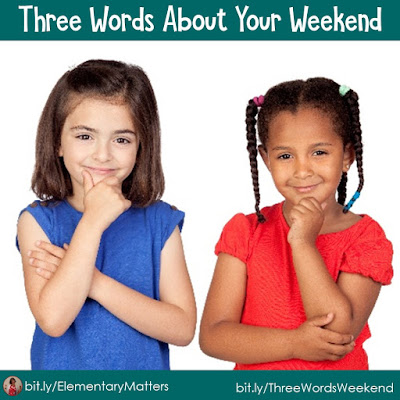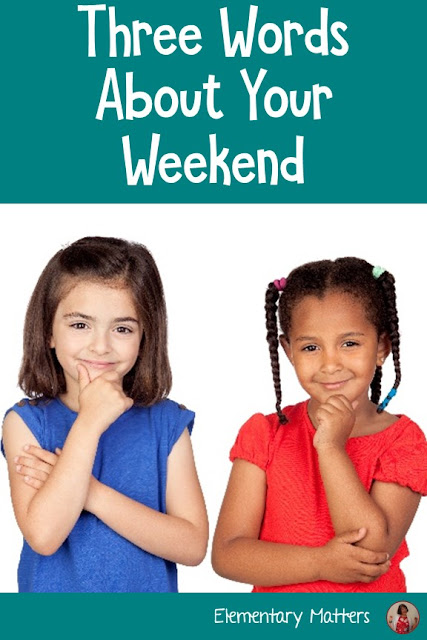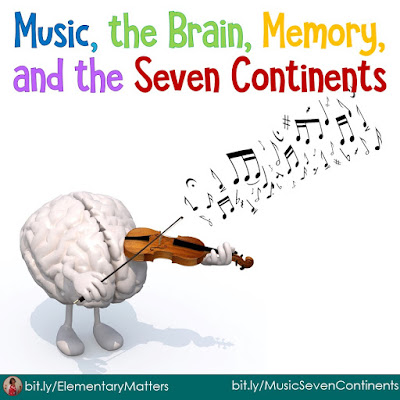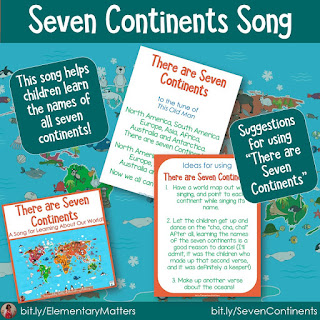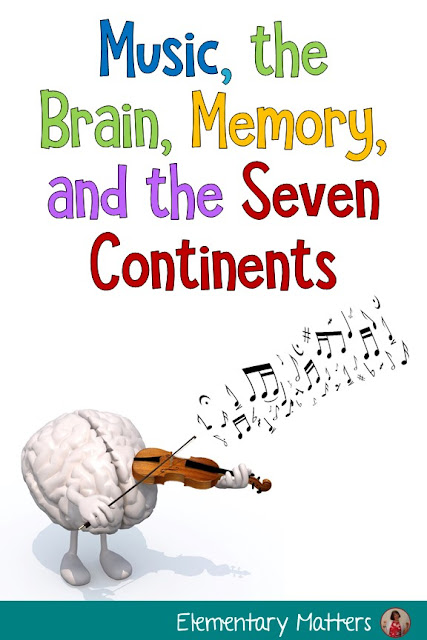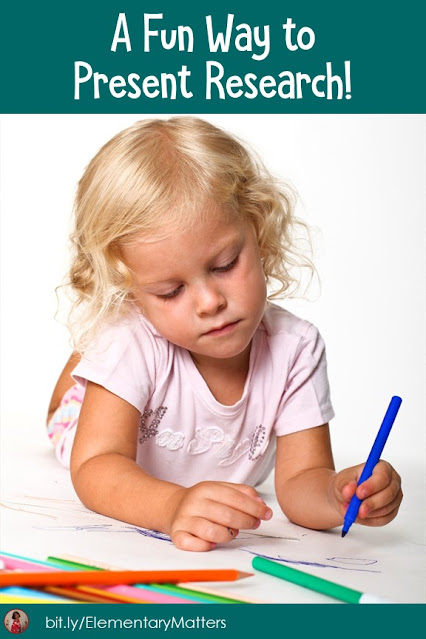Plus, teachers could use a little superpower posing as well. How about a little power posing before that observation?
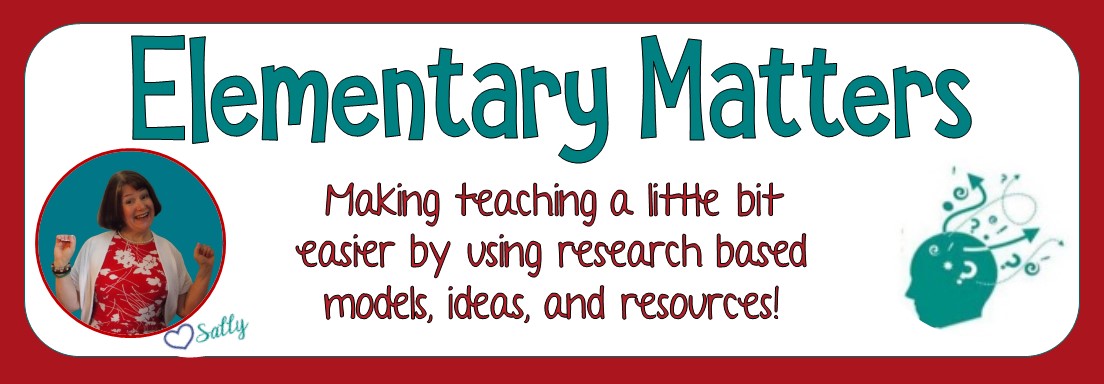
Elementary Matters is an educational blog focused on Elementary grades 1-3. These posts will make an elementary teacher's life easier by sharing information about how the brain learns best. It includes time savers, suggestions for classroom management, hints on effective teaching of reading, writing, and math, and several ideas for squeezing Science and Social Studies into daily instruction. These posts include links to several videos, articles, resources, and plenty of free materials.
Strike a Hero Pose for Super Powers!
Plus, teachers could use a little superpower posing as well. How about a little power posing before that observation?
Life Cycle Ideas and Activities for Hands-on Learning Fun!
Do you teach about life cycles?
Here is a plethora of ideas and resources to make your life easier and to help make learning fun!
Why is it important to teach about life cycles?
Teaching young people about life cycles is a great way to help them understand the world around them. It helps them connect with nature, and develop a sense of life patterns.
I typically start any unit with plenty of books on the topic, and here are some of my favorites! (Can you tell who my favorite children's non-fiction author is?) Each image is an affiliate link to Amazon.
The Pumpkin Book by Gail Gibbons
Owls by Gail Gibbons
Bats by Gail Gibbons
From Seed to Plant by Gail Gibbons
Chicks and Chickens by Gail Gibbons
Frogs by Gail Gibbons
Apples by Gail Gibbons
What is a Life Cycle? by Bobbie Kalman
Life Cycles From Start to Finish by Sam Falconer
Plant Life Cycles by Mara Grumbaun
You can find more books on life cycles HERE! (Also affiliate links!) In my classroom, I'll read a few, then leave several different life cycle related books out for them to read on their own. (The librarian/ media specialist is your best friend!)
Start with something small, with just a few parts to the life cycle. Flowering plants, such as sunflowers or daisies are a great place to start, since these life cycles are very basic. After going over one or two simple life cycles, advance to something else children enjoy and know something about like apples or chickens!
Then do a few more together. Advance to something more complex and fun, like the butterfly or the frog!
There are so many plants and animals out there, each child can have plenty of options for exploring on their own!
Then assign research. More advanced students can do all the research on their own. Average students can do some research on their own. Some students will need extra guidance. I highly recommend using the text pages from these collections:
Spring Life Cycle Bundle: 9 different plants and animals (dandelions, cherry trees, bees, Monarch butterflies, chickens, robins, salmon, earthworms, and rabbits)
Summer Life Cycle Bundle: 9 different plants and animals (watermelons, daisies, strawberries, tomatoes, frogs, praying mantises, sea turtles, ants, and ladybugs)
Fall Life Cycle Bundle: 8 different plants and animals (apple trees, corn, pumpkins, sunflowers, owls, spiders, bats, and wild turkeys)
Winter Life Cycle Bundle: 9 different plants and animals (orange trees, cocoa trees, pine trees, deer, groundhogs, harp seal, penguin, polar bear, and puffins)
Why are these sorted by season? Well, because it's more fun! I'm sure you know how excited the kiddos get about special events and holidays! Use that excitement in your classroom! Let them explore pumpkins and bats near Halloween! Let them explore pine trees and deer around Christmas!
All these life cycle sets are sold separately, but the bundles are at a huge discount. Plus, all bundles include these two extra resources:
Reader's theater about life cycles: What Came First, the Chicken or the Egg? This is a great way for students to share what they've learned and culminate the unit! Plus, there's a song for performers to sing as a finale!
Digital fun! Life Cycle Fun Facts! This resource (hosted on the popular Boom Learning platform) includes facts and questions about a plethora of plant and animal life cycles! This deck has 40 different questions, and no child will know all the answers! One of the features I love about Boom Learning resources, is that they can play the deck over and over, and because of the immediate feedback, they can learn something every time they play! Teachers can easily check their scores to make sure they are showing growth! (If they aren't, there's a conversation that needs to take place!)
There are many ways to differentiate the learning of life cycles!
Whether they're working alone, with a partner, a small group, or the whole group, this is important:
Get them talking and thinking! Get them comparing different life cycles, looking for similarities and differences. Have them predict a life cycle of a plant or animal before researching it. Encourage them to sort life cycles that are alike! Most of all, get them talking about what they are learning! Those conversations deepen the learning!
All life cycle resources include these 7 pages:
Choice is essential!
All of these resources are included in The Life Cycles Collection. This massive bundle includes 35 different plant and animal life cycles as well as the Reader's Theater: What Came First, the Chicken or the Egg? and the digital resource: Life Cycle Fun Facts! Have I mentioned that bundles come with big discounts?
Most important, give opportunities to share their learning. Although some might be shy about sharing information in front of the class, that's what makes it so memorable! The memory is powerful when strong emotions are involved. Not only will they remember what they shared, they'll remember what life cycles their classmates shared as well!
A special day to celebrate all the learning is a necessity! Have a Life Cycle Festival! Have children share their presentations on what they learned! Invite parents, administration, friends, other classes, etc! I'll bet you can think of plenty of life cycle related foods to serve! Be sure to have someone videotape it all!
What ideas do you have for learning and celebrating life cycles?
Party Talk, an Activity for Sharing Learning, Team Building, and Collaboration
Here's a fun way for students to share information, while enjoying a shared experience and bonding as a class!
It's called "Party Talk!"
I learned about this activity when I was working on my Master's program in Creative Arts in Learning. This particular class was a music class. Our assignment was to research a composer.
I
don't want to give away my age but this music assignment was when the
internet was
virtually unknown, and at the time, it was hard to find information
about a composer that was still alive... at the time. We were given the
assignment to learn about the composer, but we didn't know what we were
going to do with that information until we came to class that day.
Since I was working on a production of Company at the time, I chose to research Stephen Sondheim. (Yes, musical theatre is my thing. I played the part of April in this production!)
This isn't my production, but this "butterfly monologue" was one of my favorite scenes I've ever performed.
Again, this isn't me, but I did sing this song in the production. (You may recognize the man playing Bobby!)
We showed up the day the research was due, and had no idea what to expect! The instructor told us we were going to have a "cocktail party" and gave us "Hello My Name is..." tags.
Well, we put the names of our composers on our tags and started chatting with others at the "cocktail party." I chatted with Beethoven, Vivialdi, Tchaikovsky, Handel, Mozart, and several others. What a great way to share the information we learned!
Fast forward many years... although most of my teaching has been in the primary grades, I did spend a couple of years in fifth grade. (Luckily I had some awesome colleagues to help me!) While teaching the Revolutionary War, we were due for a research project, and I remembered this activity.
So we had a "Boston Tea Party." (I did make it clear we were going to drink tea rather than throw it in the harbor.) A parent volunteer made some awesome colonial themed nametags, we pulled of the "fine china" and they had tea (with plenty of sugar) while chatting with other colonial heroes. They used "cheat sheets, of course, and I gave them typical questions to ask each other. We modeled a few rounds on the days leading up to the event so they'd know what to expect. I had extra adults in the room that day to make sure they stayed on task and interacted with lots of classmates, not just their closest buddies. (Yes, children need a lot more guidance than adults, don't they?)
With adults, it's ok to call it a "cocktail party," but with the little ones, I prefer to call it "party talk."
Can you imagine your own precious little ones doing this?
As you know, children love to get dressed up and pretend to be someone (or something) else! Why not put that excitement into learning? Pretty much anything that can be researched can be presented in this way: biographies, careers, landforms, or even life cycles!
They really do enjoy dressing up and pretending to be someone else... it's like getting a second Halloween! (without the candy, of course!)
If you study Life Cycles, these are great for beginning researchers: The Life Cycle Collection
If you think about it, you can do party talk at just about any time! They could even have their own name on their nametags, and just talk about themselves! (Great beginning of the year activity!)







